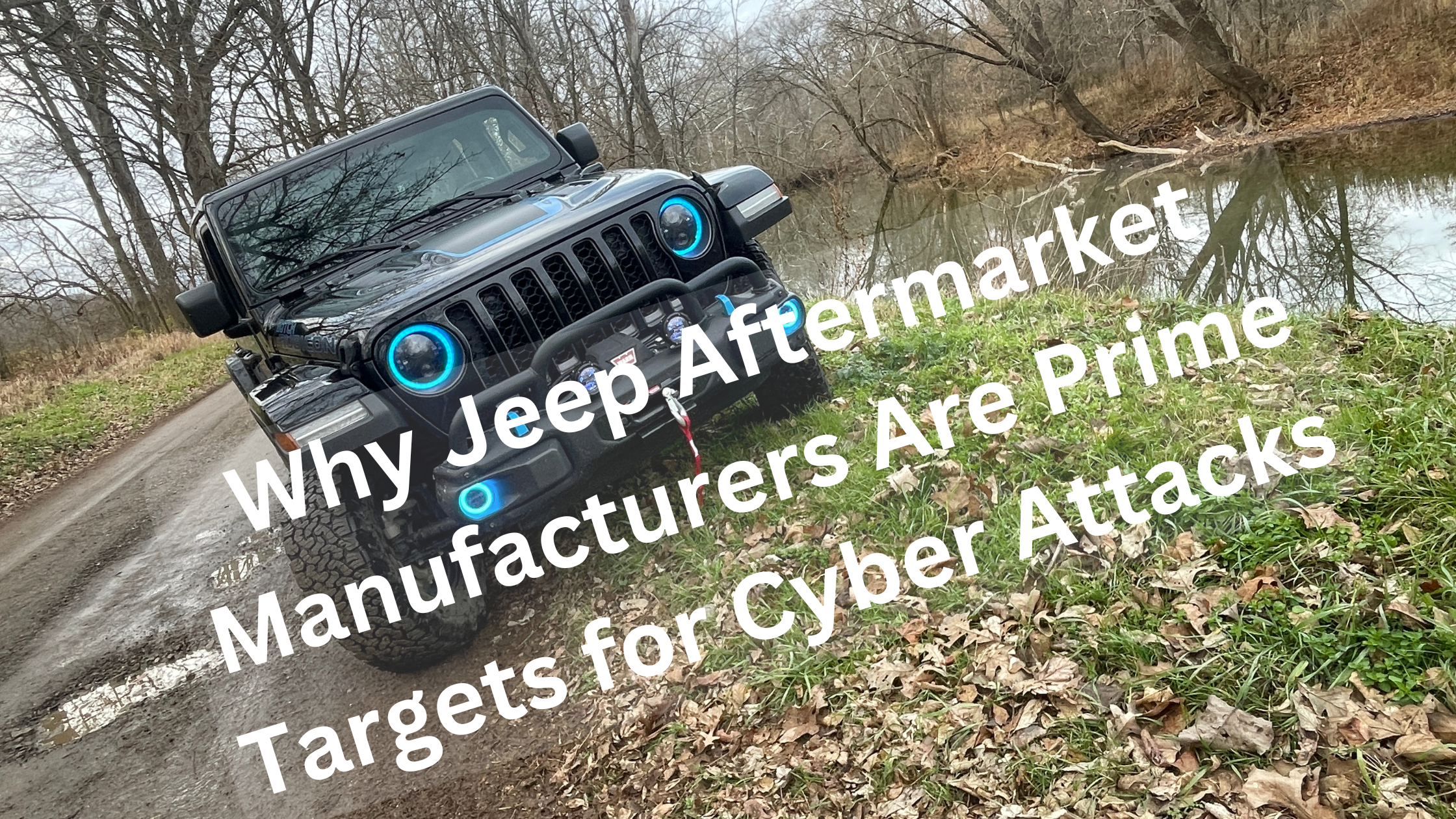The Jeep aftermarket industry is booming, with enthusiasts constantly seeking new ways to customize and enhance their vehicles. However, this success comes with a hidden danger that many manufacturers overlook: cybersecurity threats. As a specialist in both the Jeep community and cybersecurity, I've witnessed firsthand how vulnerable our industry has become to digital attacks.
The Perfect Storm: Why Jeep Manufacturers Are at Risk
The aftermarket automotive industry, particularly the Jeep sector, presents an attractive target for cybercriminals for several reasons. First, many manufacturers maintain extensive customer databases and intellectual property related to product designs. Second, the industry's rapid growth means many companies are focusing on production and sales while inadvertently neglecting cybersecurity.
Critical Vulnerabilities in the Jeep Aftermarket Space
- E-commerce Integration
- Online ordering systems
- Customer data storage
- Payment processing platforms
- Design and Manufacturing Systems
- CAD files
- CNC programming
- Production scheduling software
- Supply Chain Management
- Vendor portals
- Inventory management systems
- Shipping and logistics platforms
Real-World Consequences
In recent years, several Jeep aftermarket manufacturers have faced devastating cyber attacks. While many cases go unreported to protect brand reputation, the pattern is clear: businesses without proper cybersecurity measures face extended downtime, massive ransoms, and potential closure.
The True Cost of a Cyber Attack
- Average downtime: 2-3 months
- Typical ransom demands: $500,000 to $5,000,000
- Lost production time
- Damaged customer relationships
- Compromised intellectual property
Essential Protection Strategies
1. Advanced Endpoint Protection
Implement enterprise-grade security solutions like SentinelOne, which provides:
- Real-time threat detection
- Automated response capabilities
- Protection against ransomware
2. Cloud Security
While cloud platforms offer convenience, they require additional security measures:
- Multi-factor authentication
- Regular backup verification
- Enhanced access controls
3. Employee Training
Your team is your first line of defense:
- Regular security awareness training
- Phishing simulation exercises
- Clear security protocols
The Role of Cyber Insurance
While essential, cyber insurance shouldn't be your only protection:
- Insurance providers increasingly require security measures
- Claims can still result in weeks of downtime
- Coverage may require complete system replacement
Taking Action
As someone deeply embedded in both the Jeep community and cybersecurity industry, I've seen too many manufacturers suffer preventable attacks. Don't wait until it's too late to protect your business.
Immediate Steps:
- Assess your current security posture
- Implement basic protection measures
- Develop an incident response plan
Contact us for a free security evaluation - email jim@splice.net to protect your Jeep aftermarket manufacturing business today.


